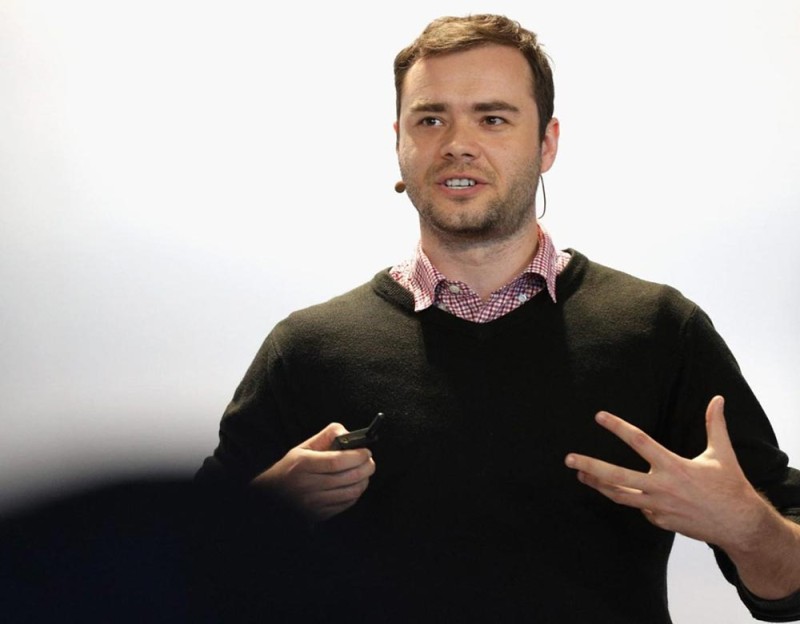
现代人工智能领域最具影响力的人物之一、OpenAI创始成员安德烈·卡帕西,上周末对行业迈向通用人工智能(AGI)的进程发表了一份惊人的评估,在科技界引发震动。
在接受拥有超百万粉丝的YouTube博主、播客主持人德瓦克什·帕特尔(Dwarkesh Patel)的广泛传播的访谈时,卡帕西表示,他认为通用人工智能的研发进程远不及舆论炒作的那般迅速。
尽管过去三年大型语言模型(LLM)发展迅猛,但他指出,通用人工智能的实现仍需至少十年,并警告称,许多公司正夸大AI的代理能力,这种做法可能损害整个领域的发展。
“总体而言,现有模型远未成熟,”卡帕西在播客中直言,“我感觉整个行业步子迈得太大,试图营造惊艳假象,实则不然,更像是数字残羹。”
此次访谈迅速在科技界激起波澜。随着资本投入与竞争加剧,人们对通用人工智能的期望本已水涨船高。
预测市场聚合平台TradeFox首席执行官普里特维尔·贾维里(Prithvir Jhaveri)在X平台上写道:“如果连卡帕西的访谈都戳不破AI泡沫,那就没什么能做到了。”
科技播客TBPN主持人约翰·库根(John Coogan)指出,就在卡帕西接受采访的几周前,人工智能先驱理查德·萨顿(Richard Sutton)刚将大型语言模型称为“死胡同”。
库根在X平台上写道:“科技界此刻正经历着认知冲击。”
卡帕西曾担任特斯拉(Tesla)人工智能高级总监,并在OpenAI早期参与领导工作。他坦言,自己对AI发展时间线的预估比许多公开预测“悲观五到十倍”。但他不认为“十年实现通用人工智能”是消极预期。采访后他在X平台上写道:“对通用人工智能而言,十年本应是相当乐观的时间表。”
对硅谷而言,这一预测显得保守。卡帕西的同行、OpenAI联合创始人兼现任首席执行官萨姆·奥尔特曼(Sam Altman)预测,到2030年,人工智能将在所有专业领域超越人类智力。埃隆·马斯克(Elon Musk)则断言通用人工智能将在今明两年内实现。
卡帕西指出,当前许多困惑源于夸大能力的评估指标。他表示,公开演示、基准竞赛、聊天对话及代码生成测试往往只体现局部优化,并未解决AI领域最棘手的未解难题,例如长远规划、结构化推理以及最终的安全系统设计。
卡帕西将最严厉的批评留给了“AI智能体”——这一概念近几个月在业内迅速爆红。
这些基于大型语言模型的系统被宣传为“自主数字员工”,号称能编写运行代码、搜索网络、操作软件并在极少监督下完成商业任务。卡帕西认为这一构想很有前景,但目前的实现水平远未可靠。
“我们正处于中间阶段,”卡帕西表示,“模型本身令人惊叹,但仍需大量改进。”
其他许多AI领袖则乐观得多。例如,英伟达(Nvidia)首席执行官黄仁勋(Jensen Huang)称2025年为“AI智能体元年”。Anthropic首席执行官达里奥·阿莫迪(Dario Amodei)近期表示,到2026或2027年,AI系统将“在几乎所有方面超越几乎所有人”。
但卡帕西警告,目前多数AI智能体系统生成的结果脆弱难测,缺乏基本可靠性。他认为这些系统推理能力不足,对软件环境感知有限,且难以正确使用工具。
“如果处理不当,”卡帕西指出,“最终可能导致软件中堆积如山的数字残渣,漏洞与安全事件激增。”
尽管如此,他仍坚信AI发展虽道阻且长,却前途可期。他表示,未来的技术挑战固然艰巨,但假以时日、深入研究并完善安全实践,终可攻克。
“我认为这些问题终将解决,”他坦言,“但过程依然充满挑战。”(*)
译者:中慧言-王芳
现代人工智能领域最具影响力的人物之一、OpenAI创始成员安德烈·卡帕西,上周末对行业迈向通用人工智能(AGI)的进程发表了一份惊人的评估,在科技界引发震动。
在接受拥有超百万粉丝的YouTube博主、播客主持人德瓦克什·帕特尔(Dwarkesh Patel)的广泛传播的访谈时,卡帕西表示,他认为通用人工智能的研发进程远不及舆论炒作的那般迅速。
尽管过去三年大型语言模型(LLM)发展迅猛,但他指出,通用人工智能的实现仍需至少十年,并警告称,许多公司正夸大AI的代理能力,这种做法可能损害整个领域的发展。
“总体而言,现有模型远未成熟,”卡帕西在播客中直言,“我感觉整个行业步子迈得太大,试图营造惊艳假象,实则不然,更像是数字残羹。”
此次访谈迅速在科技界激起波澜。随着资本投入与竞争加剧,人们对通用人工智能的期望本已水涨船高。
预测市场聚合平台TradeFox首席执行官普里特维尔·贾维里(Prithvir Jhaveri)在X平台上写道:“如果连卡帕西的访谈都戳不破AI泡沫,那就没什么能做到了。”
科技播客TBPN主持人约翰·库根(John Coogan)指出,就在卡帕西接受采访的几周前,人工智能先驱理查德·萨顿(Richard Sutton)刚将大型语言模型称为“死胡同”。
库根在X平台上写道:“科技界此刻正经历着认知冲击。”
卡帕西曾担任特斯拉(Tesla)人工智能高级总监,并在OpenAI早期参与领导工作。他坦言,自己对AI发展时间线的预估比许多公开预测“悲观五到十倍”。但他不认为“十年实现通用人工智能”是消极预期。采访后他在X平台上写道:“对通用人工智能而言,十年本应是相当乐观的时间表。”
对硅谷而言,这一预测显得保守。卡帕西的同行、OpenAI联合创始人兼现任首席执行官萨姆·奥尔特曼(Sam Altman)预测,到2030年,人工智能将在所有专业领域超越人类智力。埃隆·马斯克(Elon Musk)则断言通用人工智能将在今明两年内实现。
卡帕西指出,当前许多困惑源于夸大能力的评估指标。他表示,公开演示、基准竞赛、聊天对话及代码生成测试往往只体现局部优化,并未解决AI领域最棘手的未解难题,例如长远规划、结构化推理以及最终的安全系统设计。
卡帕西将最严厉的批评留给了“AI智能体”——这一概念近几个月在业内迅速爆红。
这些基于大型语言模型的系统被宣传为“自主数字员工”,号称能编写运行代码、搜索网络、操作软件并在极少监督下完成商业任务。卡帕西认为这一构想很有前景,但目前的实现水平远未可靠。
“我们正处于中间阶段,”卡帕西表示,“模型本身令人惊叹,但仍需大量改进。”
其他许多AI领袖则乐观得多。例如,英伟达(Nvidia)首席执行官黄仁勋(Jensen Huang)称2025年为“AI智能体元年”。Anthropic首席执行官达里奥·阿莫迪(Dario Amodei)近期表示,到2026或2027年,AI系统将“在几乎所有方面超越几乎所有人”。
但卡帕西警告,目前多数AI智能体系统生成的结果脆弱难测,缺乏基本可靠性。他认为这些系统推理能力不足,对软件环境感知有限,且难以正确使用工具。
“如果处理不当,”卡帕西指出,“最终可能导致软件中堆积如山的数字残渣,漏洞与安全事件激增。”
尽管如此,他仍坚信AI发展虽道阻且长,却前途可期。他表示,未来的技术挑战固然艰巨,但假以时日、深入研究并完善安全实践,终可攻克。
“我认为这些问题终将解决,”他坦言,“但过程依然充满挑战。”(*)
译者:中慧言-王芳
Andrej Karpathy, one of the most influential figures in modern artificial intelligence and a founding member of OpenAI, sent shockwaves through the tech world over the weekend with a sobering assessment of the industry’s progress toward artificial general intelligence (AGI).
In a widely shared interview with podcaster Dwarkesh Patel, a YouTuber with over 1 million followers, Karpathy said he believes the race to build AGI is moving significantly slower than the hype suggests.
Despite rapid advances in large language models (LLMs) over the past three years, he argued AGI remains at least a decade away, and warned that many companies are exaggerating AI’s agentic capabilities in a way that could damage the field.
“Overall, the models are not there,” Karpathy said on the podcast. “I feel like the industry is making too big of a jump and is trying to pretend like this is amazing, and it’s not. It’s slop.”
The interview triggered an immediate reaction across the tech community, where expectations for AGI have soared alongside capital investment and competition.
“If this Karpathy interview doesn’t pop the AI bubble, nothing will,” Prithvir Jhaveri, CEO of prediction markets aggregator TradeFox, wrote on X.
John Coogan, host of the tech podcast TBPN, noted that Karpathy’s interview came just weeks after AI pioneer Richard Sutton called LLMs a “dead end.”
“The general tech community is experiencing whiplash right now,” Coogan wrote on X.
Karpathy, who previously served as Tesla’s senior director of AI and helped lead OpenAI in its early years, described his AI timeline as “five to ten times pessimistic” compared to many public predictions. But he rejected the idea his prediction, that it’ll take a decade to achieve AGI, is gloomy. “Ten years,” he wrote on X after the interview, “should otherwise be a very bullish timeline for AGI.”
For Silicon Valley, it’s a slow projection. Sam Altman, Karpathy’s fellow OpenAI co-founder and current CEO, predicts artificial intelligence will surpass the intelligence of any human in any specialty by 2030. Elon Musk has predicted that AGI will come either this year or the next.
Karpathy argued that much of the confusion stems from metrics that give an inflated sense of capability. Public demos, benchmark competitions, chatbot conversations, and code-generation tests tend to reflect narrow optimizations, he said, rather than addressing the hardest unsolved problems in AI. Those include long-horizon planning, structured reasoning and, ultimately, safe system design.
Karpathy reserved his strongest criticism for AI “agents,” a concept that has exploded across the industry in recent months.
These systems, built on top of LLMs, are pitched as autonomous digital workers that can write and run code, search the internet, operate software, and execute business tasks with minimal oversight. Karpathy said the idea is promising, but the execution, at least how it stands today, is far from reliable.
“We’re at this intermediate stage,” Karpathy said. “The models are amazing. They still need a lot of work.”
Many other AI leaders are much more bullish. For example, Nvidia CEO Jensen Huang has called 2025 “the year of AI agents.” Anthropic CEO Dario Amodei recently said that by 2026 or 2027, AI systems will be “better than almost all humans at almost all things.”
But most current AI agent systems produce brittle, unpredictable results and lack basic reliability, Karpathy warned. He argued they do not possess enough reasoning ability, have limited perceptions of software environments, and struggle to use tools correctly.
“If this isn’t done well,” Karpathy said, “we might end up with mountains of slop accumulating across software, and an increase in vulnerabilities [and] security breaches.”
Still, he insisted AI remains on a long but solvable path. The technical challenges ahead are difficult, he said, but manageable with time, research, and better safety practices.
“I feel like the problems are surmountable,” he said. “But they’re still difficult.”

